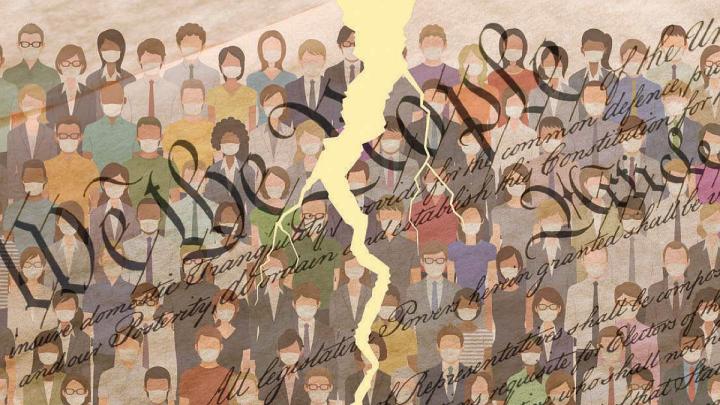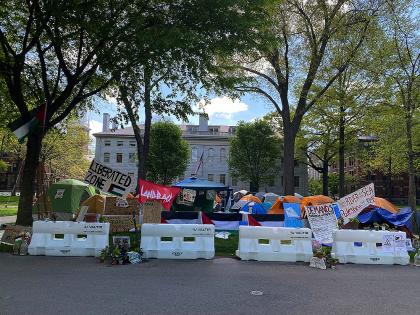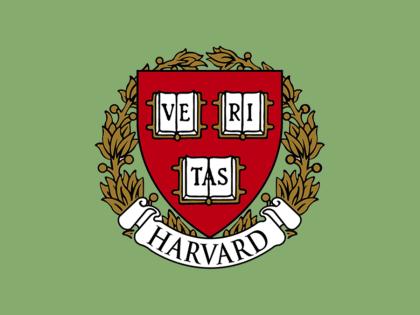Political philosopher Danielle S. Allen, Conant University Professor and, for a time, a candidate for the Democratic nomination for governor of Massachusetts, has examined the pandemic in light of America’s social and political arrangements. In Democracy in the Time of Coronavirus (University of Chicago, $18, paper). Allen, whose work was explored in “The Egalitarian” (May-June 2016, page 40), finds deep reasons for concern. From the preface:
A social contract is the set of rights and mutual responsibilities that we have among ourselves as citizens in a constitutional democracy. A social contract is both what’s asked of us…and all that is made possible for us by virtue of our participation in that constitutional democracy. What’s asked of us and what we receive establish relations of reciprocity within the citizenry.…
The pandemic revealed that our social contract is fundamentally broken. Our society includes people who are being asked to follow the law and to pay taxes but who are not in return receiving the opportunity and security promised by our arrangement of mutual rights and responsibilities. The elderly and essential workers, for instance, have been left exposed….We have seen disparate impacts on communities of color, because underlying foundations of health have not been adequately established for low-income workers. When crisis hit, the society that promised to protect all did not in fact protect many of its members.
To repair our social contract, we need to understand the goals and responsibilities of public decision-makers and democratic citizens in a…time of crisis. We need to understand the vulnerabilities in our society that left us ill-equipped to fulfill those responsibilities.…We need to acknowledge what kind of public health strategy would have fulfilled those goals and responsibilities in response to this crisis, and we need to explore why we failed to adopt this strategy.…We need to learn how to use the machinery of our political institutions to deliver on those goals more effectively, if not now, in this crisis, then going forward.…Once we have taken these steps, we will be able to sketch out the parameters of a transformed peace, a social contract that delivers pandemic resilience and, more generally, justice and health for our constitutional democracy on the fundation of a fair and flourishing economy.…
Pandemic resilience requires public health infrastructure, of course, but also…a healthy social contract—good governance and bonds of solidarity and mutual commitment within the population, connected to love of country.…The goal is a framework for delivering…a postpandemic state in which, as a society, we would be less vulnerable to injury because we would be stronger as a society. We would have more civic strength by virtue of having a healthy social contract, supporting both good governance and solidarity.







